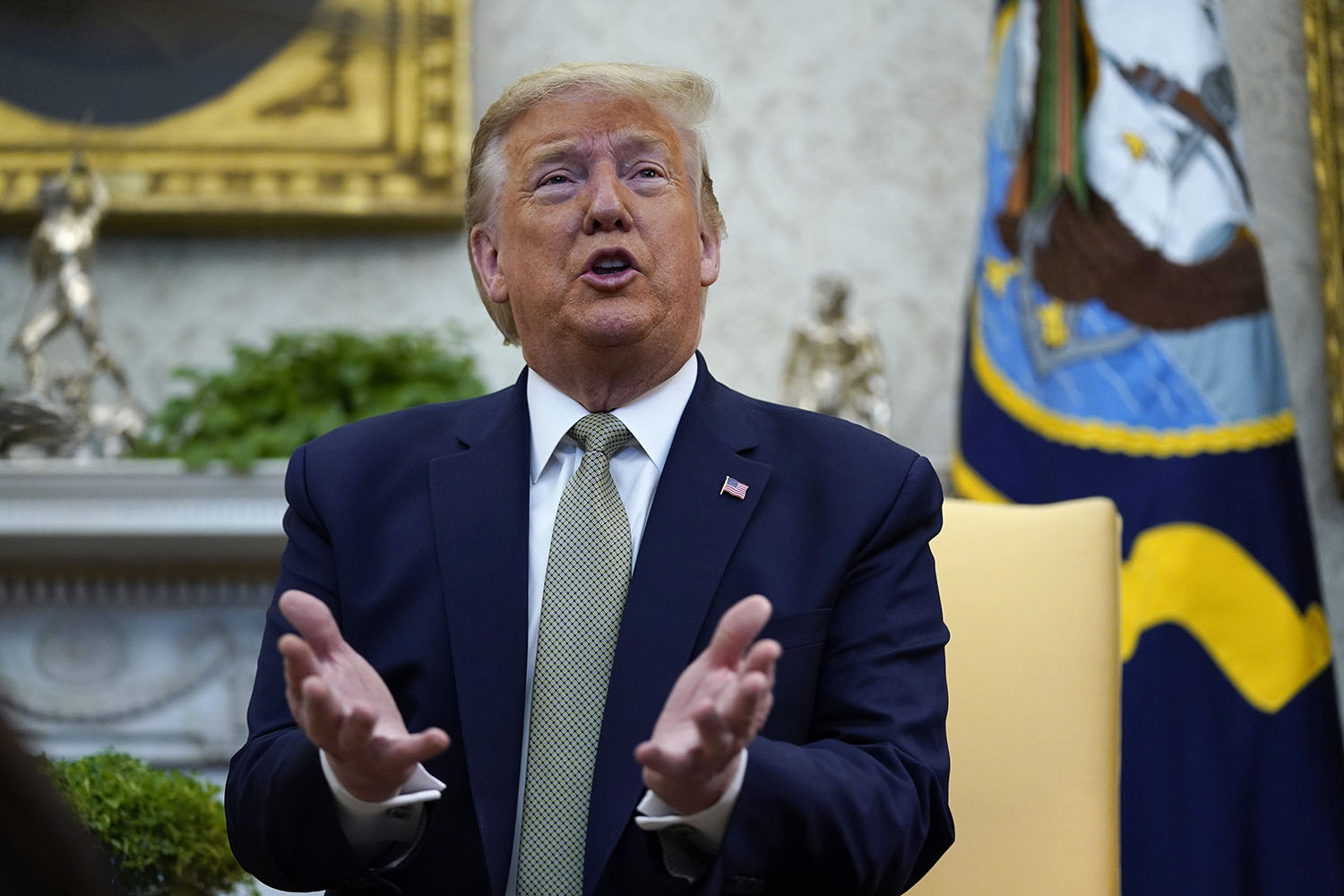
Yet Trump insisted that the risk remains “very, very low” for most people, focusing almost exclusively on efforts to keep out foreign travelers — a measure the World Health Organization has long warned could ultimately do far more economic and social damage than good.
“The biggest risk we face right now is that our hospitals begin getting overwhelmed as we’re seeing in Italy,” said Konyndyk, adding that the U.S. is on pace to see the same dramatic jump in cases. “We didn’t hear a word about that: not a word about the risk to U.S. hospitals, not a word about how we’re going to keep mortality down in this country, not a word about testing.”
Tom Bossert, a former Trump homeland security adviser who’s increasingly sounded the alarm on the readiness of U.S. hospitals, predicted Thursday: “We will regret wasting time and energy on travel restrictions and wish we focused more on hospital preparation and large scale community mitigation.”
The administration’s top infectious disease official, Anthony Fauci, backed Trump’s travel restrictions on Thursday as a move that could help slow the virus’ spread.
“Most of the new infections that we’re getting right now, the majority of them are coming from Europe,” he said.
When Trump’s address did turn his attention to health care efforts at home, his vague pledges served only to surprise and confuse health insurers trying to coordinate a response his administration.
Health insurers, which met with Trump just days ago, scrambled to rebut Trump’s claims that plans would cover coronavirus treatments at no cost, clarifying that they only committed eliminate out-of-pocket costs for testing. Insurers will cover coronavirus care, but have not yet committed to waiving costs for treatment.
“For testing. Not for treatment,” a spokesperson for America’s Health Insurance Plans, the industry’s main trade group, told POLITICO minutes after Trump’s speech.
And while a range of insurers have vowed to cover the cost of tests, not all have specified that they’ll waive co-pays for the office visit where patients would receive the tests.
The administration also later had to walk back Trump’s assertion that his new travel bans would also affect cargo coming from 26 European countries — a move that could have disrupted key elements of the pharmaceutical supply chain and thrown up new barriers to testing. At least two test kit companies are based in European countries.
The White House, meanwhile, has offered only limited guidance for how it plans to aid hospitals that could soon be overwhelmed. An hourlong Wednesday meeting between hospital leaders and top administration officials accomplished little, people with knowledge of the discussion said.
“The hope was that there’d be more to say” coming out of the meeting, said one person with knowledge of the discussion.
In closed-door briefings Thursday morning on Capitol Hill, exasperated lawmakers pressed administration officials for a clearer plan than what Trump laid out in prime time — zeroing in on the slow pace of testing and raising a series of concerns about potential shortages of critical emergency response supplies like ventilators and sedatives, according to attendees.
“If the number of people who have it and need intensive care outnumber our ability to provide intensive care … that’s where you overwhelm the system,” said Sen. Marco Rubio (R-Fla.).
And while Trump during his speech touted test capabilities that are “expanding rapidly, day by day,” officials faced sharp questions over why the U.S. is lagging well behind countries like South Korea, which has been testing tens of thousands of people per day.
Dan Diamond and Susannah Luthi contributed to this report.
Source: politico.com
See more here: news365.stream






